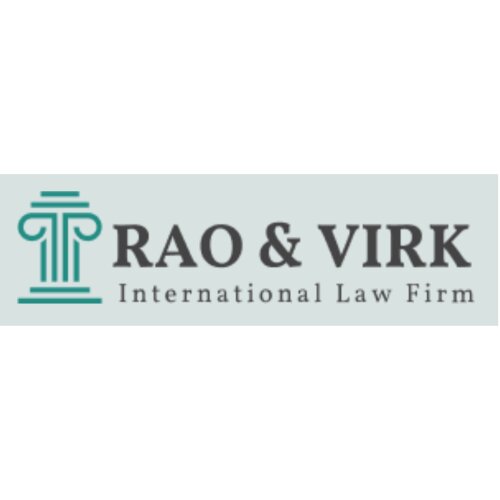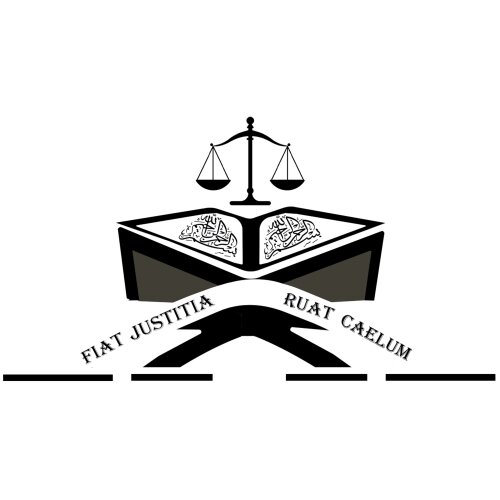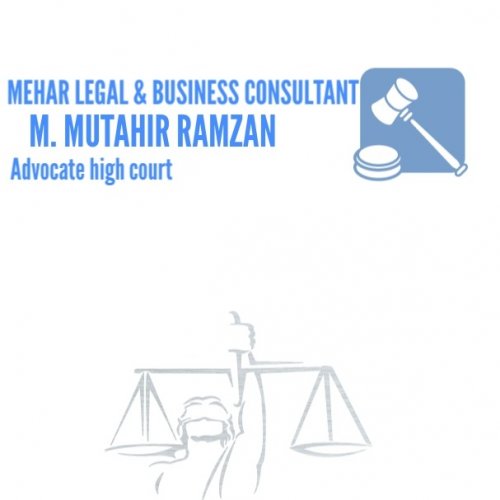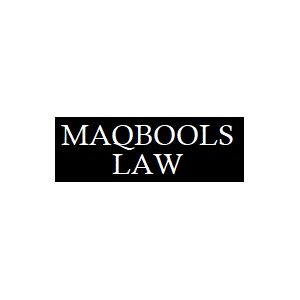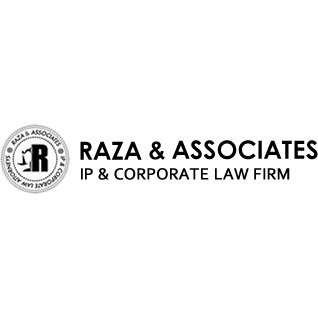Best Art & Cultural Property Law Lawyers in Pakistan
Share your needs with us, get contacted by law firms.
Free. Takes 2 min.
Or refine your search by selecting a city:
List of the best lawyers in Pakistan
About Art & Cultural Property Law in Pakistan
Art & Cultural Property Law in Pakistan encompasses a range of legal frameworks that aim to protect, manage, and preserve the country's rich cultural heritage. This field of law governs the creation, acquisition, ownership, and disposition of cultural property, as well as the protection of traditional artifacts, artworks, and historical monuments. The laws are designed to prevent the illegal trafficking of cultural artifacts and to ensure the lawful transfer and preservation of national heritage. Pakistan's cultural property laws are influenced by both domestic legislation and international conventions, such as UNESCO treaties, that the country is a signatory to.
Why You May Need a Lawyer
There are several situations where you might require legal assistance in Art & Cultural Property Law in Pakistan:
- If you are involved in the buying or selling of artworks or cultural artifacts and need to ensure the transaction complies with local and international laws.
- If you are a collector or dealer needing to authenticate the provenance of cultural property to avoid issues of illegal acquisition.
- If you represent a cultural institution seeking guidance on compliance with local heritage protection laws.
- If you are facing legal issues relating to the restitution or repatriation of cultural property to its country of origin.
- If you require assistance in claiming ownership of cultural property or defending against such claims.
- If you are involved in the creation and administration of cultural heritage trusts or organizations.
Local Laws Overview
In Pakistan, Art & Cultural Property Laws comprise a set of legal statutes and regulations. Key laws include:
- The Antiquities Act, 1975: This act provides comprehensive guidelines on the preservation of heritage sites and artifacts, outlining penalties for illegal excavation and exportation.
- The Copyright Ordinance, 1962: Although primarily dealing with intellectual property rights, it impacts artworks in terms of their protection and commercial use.
- The Pakistan Penal Code: Addresses crimes related to the damage or destruction of protected cultural properties.
- Local provincial laws: These may vary between provinces, such as the Sindh Cultural Heritage Act, 1994, which pertains to the conservation of heritage sites within Sindh.
These laws are aligned with various international conventions to which Pakistan is a party, emphasizing the country's commitment to safeguarding cultural heritage.
Frequently Asked Questions
1. What constitutes cultural property under Pakistani law?
Cultural property is defined as artifacts, sites, structures, and objects that have artistic, historic, or archaeological significance and are protected by law.
2. How can I verify the legality of an artifact purchase in Pakistan?
You should seek documentation verifying the provenance and legality of the artifact, often requiring consultation with legal experts in cultural property law.
3. What are the consequences of illegally exporting cultural property from Pakistan?
Illegally exporting cultural property can result in severe penalties, including fines, imprisonment, and confiscation of the artifact.
4. How are intellectual property rights linked to Art & Cultural Property Law?
Intellectual property rights protect the creators of works of art, ensuring they retain control over their creations' use and commercialization.
5. How can one repatriate cultural heritage to Pakistan?
This often involves diplomatic negotiations and legal proceedings, guided by international conventions and domestic laws.
6. What legal protections exist for cultural heritage sites in Pakistan?
Sites are protected under the Antiquities Act, 1975, which aims to preserve historical and cultural monuments against destruction and illegal excavation.
7. Can cultural property be privately owned in Pakistan?
Cultural property can be privately owned, but there are stringent regulations concerning its protection, sale, and exportation to prevent loss of national heritage.
8. What should I do if I discover an ancient artifact on my property?
It is important to report the find to the relevant authorities promptly to ensure legal compliance and proper handling.
9. Are there tax benefits for donating art to a museum in Pakistan?
Yes, donating art to public museums can provide significant tax advantages under specific conditions outlined by tax legislation and public policy incentives.
10. How do international conventions impact Pakistan’s cultural property laws?
International conventions provide a framework for cooperation and mutual protection of cultural heritage, enhancing the effectiveness of national laws in combating illicit trafficking.
Additional Resources
For further assistance, you can reach out to various organizations and bodies related to Art & Cultural Property Law in Pakistan:
- The Department of Archaeology and Museums, Government of Pakistan
- The National History and Literary Heritage Division
- The Pakistan National Council of the Arts
- UNESCO Pakistan Office
- Local Bar Associations with specialists in cultural property law
Next Steps
If you require legal assistance in Art & Cultural Property Law, consider the following steps:
- Consult with a lawyer specializing in Art & Cultural Property Law to discuss your specific situation and legal options.
- Gather all relevant documentation and information about the cultural artifacts or issues in question.
- Contact relevant governmental bodies or cultural institutions for guidance and support.
- Consider joining professional networks or groups focused on cultural heritage preservation for ongoing advice and resources.
Lawzana helps you find the best lawyers and law firms in Pakistan through a curated and pre-screened list of qualified legal professionals. Our platform offers rankings and detailed profiles of attorneys and law firms, allowing you to compare based on practice areas, including Art & Cultural Property Law, experience, and client feedback.
Each profile includes a description of the firm's areas of practice, client reviews, team members and partners, year of establishment, spoken languages, office locations, contact information, social media presence, and any published articles or resources. Most firms on our platform speak English and are experienced in both local and international legal matters.
Get a quote from top-rated law firms in Pakistan — quickly, securely, and without unnecessary hassle.
Disclaimer:
The information provided on this page is for general informational purposes only and does not constitute legal advice. While we strive to ensure the accuracy and relevance of the content, legal information may change over time, and interpretations of the law can vary. You should always consult with a qualified legal professional for advice specific to your situation.
We disclaim all liability for actions taken or not taken based on the content of this page. If you believe any information is incorrect or outdated, please contact us, and we will review and update it where appropriate.
Browse art & cultural property law law firms by city in Pakistan
Refine your search by selecting a city.






